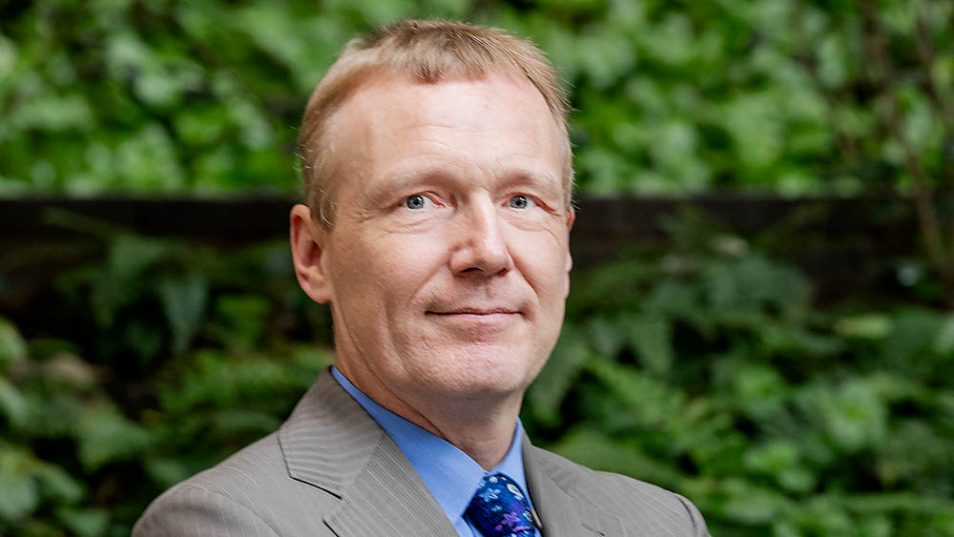“Germany’s image in the field of entrepreneurship has seen a positive change”
 © DAAD/Ambika Singh
© DAAD/Ambika Singh
Benedikt Brisch, Director of DWIH New York, on a dynamic year in 2022 and the latest developments in transatlantic cooperation.
Mr. Brisch, you’ve been Director of DWIH New York since 2019 and closely involved in monitoring transatlantic dialog in the fields of science and innovation. How important was last year from your point of view?
The year was marked by strong economic momentum in the U.S. It was exciting to see how people in the United States are still keen to invest massively in innovation. The CHIPS and Science Act and the Inflation Reduction Act both picked up a remarkable momentum: after all, these are massive investment programs that involve hundreds of billions of dollars being spent on securing a leading position for American science and business in future areas such as digitalization and climate change.
The two programs are viewed quite critically in some quarters in Germany and Europe.
That’s true. But as a close partner of the U.S., there’s a chance we’ll be able to benefit from these developments in the medium and long term too, not least by making progress on climate action, for example, and by boosting our own efforts in connection with future issues in Germany. It reflects that forward-looking U.S. mentality where people say: when faced with global challenges, we have to invest and make sure we put ourselves in a position of strength. That’s something we still need to take a close look at from a German and European perspective, and it’s important in terms of how we approach the topic of innovation in Germany, too.
You mean the attitude we take towards disruptive, new technologies, for example?
Yes, exactly. One good example is the launch of ChatGPT at the end of 2022. It quickly became clear that this was something completely new. Previously a topic that had mainly been the preserve of experts, artificial intelligence had arrived in people’s everyday lives all of a sudden. And we can all sense the great potential as well as the risks, of course. All the major U.S. tech companies are gearing up for the massive upheavals that will result from artificial intelligence. So in Germany and Europe we have to think about how we respond here, too. Do we continue to rely more on restraint and minimizing risk? Or do we invest and commit ourselves so as to be involved in shaping and controlling the new technology ourselves?
So is Germany still perceived by the U.S. as too risk-averse?
Not generally, no. You might say that Germany’s image in the field of entrepreneurship and start-ups has seen a very positive change in the U.S. We’re seeing this in our activities under the STEP USA University Program, for example, which we run in partnership with the AHK New York. For the first time since the pandemic we were able to put this on as a face-to-face event again at the end of September 2022. Here we offer German start-ups the opportunity to present their business ideas in the hotspot New York at an early stage of their company’s development. And the New York audience was really impressed by how professionally the participants performed in front of the jury. All of them were able to present their innovations and business ideas very convincingly and confidently – something that’s particularly important in the American business world. The start-up founders also demonstrated a high level of professional expertise in the Q&A rounds that followed.
So it was essentially a perfect combination of U.S. communication talent and German precision?
If you like, yes. But German start-ups still have a lot to learn through this type of program, of course. The fact is that on a global scale, the way people communicate is still very much shaped by the United States. So as a start-up, this means it’s worthwhile looking fairly early on at how to communicate your idea as effectively as possible and consider how best to present your strengths. You learn the tools of the trade, if you like, which you can then put to use worldwide – regardless of whether you have the U.S., Europe or Asia in mind for your own market entry.
What form does U.S. cooperation with Germany take in the area of climate action? The main theme of DWIH 2022 was “Sustainable Innovations”.
It has to be said that there’s definitely some criticism of the German energy transition in the U.S. In particular, Germany’s increase in coal-fired power generation to compensate for gaps in supply causes some astonishment here. But people do appreciate the fact that, as an industrial base with a high level of capability, Germany has opted to focus on renewable energies and strengthen these, driving this whole area forward with technical solutions, political decisions and investments. It’s crucial to remain in dialog here and engage in a constructive transatlantic debate. This is precisely what we see as an important task of ours here at DWIH New York.
Interview: Klaus Lüber
